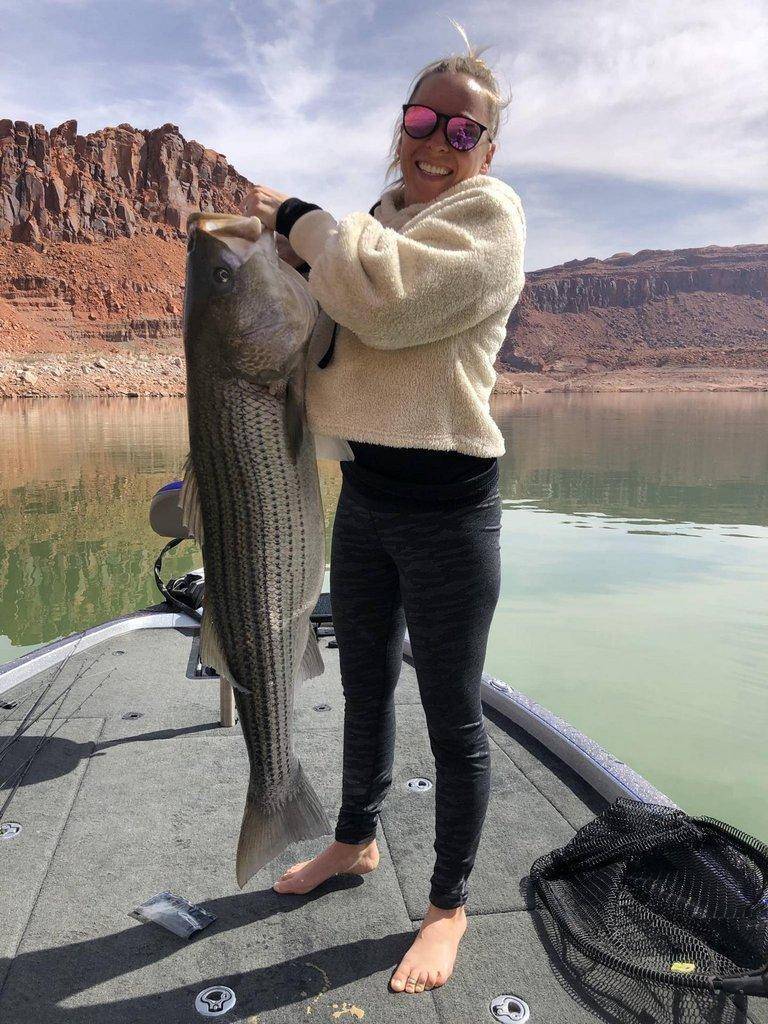DWR News Release
SALT LAKE CITY — Anyone who goes fishing knows how thrilling it is to catch a fish, especially if it is a large, potentially record-breaking one. The Utah Division of Wildlife Resources is making several changes to the state’s fishing records in 2020, including adding several new record categories for cutthroat trout.
The DWR began tracking records for harvested fish in the early 1900s. The record fish program has since been expanded to include catch-and-release records and records for fish caught using alternate tackle, like spearfishing, archery and setline. There are currently 33 catch-and-keep angling records, 34 catch-and-release records, 21 spearfishing records, six setline records and three archery records in Utah.
Here is a look at all the changes to state fishing records that will go into effect in 2020:
Archiving native nongame fish records
Some of the changes to the fish records will include archiving all the existing records for native nongame fish.
“We wanted to make this change because sometimes these records encourage people to go fish for unique species,” DWR sportfish coordinator Randy Oplinger said. “However, some of our native nongame species are sensitive or endangered and can’t sustain that angling pressure. Another reason behind archiving these records is that many of these native species are quite small (some are only a couple of inches long), so we see little benefit to keeping records for very small fish.”
The archived records will still appear on the website to credit the anglers who caught the fish, but new records will not be accepted for the archived species.
Archiving records for species no longer in Utah
Another change to the fishing records will be to archive the records for fish species that are no longer in Utah. Brownbow trout and albino trout are species that haven’t been stocked in Utah for several years.
“Having active fishing records implies that you can catch these fish and potentially break records,” Oplinger said. “These are two species that we no longer have in the state, so there is little chance of catching them and breaking the record.”
Archiving current cutthroat trout records and creating new categories
The final change to Utah’s fishing records includes archiving all the current cutthroat trout records, and creating four new records for each of Utah’s four cutthroat trout subspecies: Bear Lake, Bonneville, Colorado River and Yellowstone. Previously, the cutthroat trout record category combined all the different subspecies — this change will allow anglers to set a record for each of the four cutthroat trout subspecies.
“Our existing cutthroat trout records are old and were likely fish that were not genetically pure, including a mix of subspecies native to Utah as well as subspecies from other states,” Oplinger said. “The DWR has worked hard since the 1990s to restore the cutthroat trout subspecies to their native ranges. With these new records, the subspecies of cutthroat will be determined based on where the fish was caught. People can get information on the Utah Cutthroat Slam website about where each subspecies lives.”
People can submit applications for the four new cutthroat state records beginning Jan. 1, 2020. Applications can be submitted on the DWR website.
New records set in 2019
Several new fishing records were set in 2019:
- Catch and keep: Golden trout. Set by Isaac Vance at Marsh Lake at 1 pound 2.88 ounces and 14 ⅞ inches long and a 7 ¾-inch girth.
- Catch and release: Striped bass. Caught by Heather Litke at Lake Powell on March 16. It was 44.5 inches long.
- Catch and release: Lake trout. Caught by Matt Smiley at Flaming Gorge on May 4. It was 48 inches long.
- Catch and release: White crappie. Caught by Nathan Martinez on the Sevier River on Aug. 8. It was 9 inches long. However, that record was broken by Tim Duke on the Sevier River on Nov. 24, with an 11.5-inch fish.
- Spearfishing: Tiger muskellunge. Set by Jacob Hansen at Fish Lake on June 14 at 32 pounds, 51 inches long and a 21-inch girth.
“The primary reason that the DWR tracks record fish is to provide anglers with recognition of their achievements,” Craig Walker, the DWR aquatics assistant chief, said. “However, the DWR also lists records as a way to inform anglers, who may be seeking their own trophy, of places they might want to fish. The public records are also a fun way to encourage anglers to get out on the water and hopefully encounter some of the large fish Utah has to offer.”

